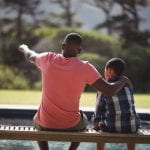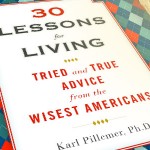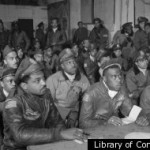 I’ve talked in previous posts about the fact that some kind of spiritual belief was important to most (but by no means all) of the Legacy Project elders. For many people age 70 and over, faith has shaped their core principles for living. In some cases, their spiritual beliefs led them to compassionate living – a desire to move beyond themselves and serve others. I’d like to share with you one spiritual elder’s thinking on this topic.
I’ve talked in previous posts about the fact that some kind of spiritual belief was important to most (but by no means all) of the Legacy Project elders. For many people age 70 and over, faith has shaped their core principles for living. In some cases, their spiritual beliefs led them to compassionate living – a desire to move beyond themselves and serve others. I’d like to share with you one spiritual elder’s thinking on this topic.
I sat in the cool, quiet Motherhouse of an order of Catholic nuns, talking to Sister Monica. Despite recent health problems, Sister Monica is a slender, vigorous, highly focused 80-year old, who speaks with the thoughtfulness and precision of a former language teacher. In her order, sisters commit their lives both to God and to serving the sick, the poor, and the disenfranchised. These nuns take the Gospel message seriously, working to help people overcome obstacles that keep them from living full and dignified lives.
Sister Monica shares a house with two other nuns in an impoverished inner-city neighborhood, allowing them better to identify with and share the lives of the poor. Her decades as a nun have seen seismic changes in the Catholic church (including dropping the nun’s formal habit for street clothes). But in my interview with her in the peaceful atmosphere of the Motherhouse, the core of her faith has clearly not changed:
I have just celebrated my 60th year as a sister. And I really feel very blessed and I’ve had a wonderful life and many wonderful opportunities. I have always felt very close to God. And my Catholic education just reinforced that with the example of the other sisters in my order.
I have a sense of God as a loving presence that walks with us. Not just me as an individual, it’s God hearing the cries of oppressed people, as the Exodus story says. God is there. And so paying attention to that and how do you find God in the beauty of creation, and in the beauty of the people around you, is very important.
The religious life that I’ve chosen is a mutual struggle to discern where God is calling us. You know, it’s hard enough to see what God is asking us to do right now, but especially where he wants us to go in the future. But it’s a very powerful kind of thing to come together as a group and make decisions that are mutually beneficial for the common good.
That’s a big thing for me, the common good. And we can live out a search for the common good in our life as Catholic nuns. Our vow of chastity is again a statement that stands in the face of using sex to sell everything, you know. Our life is a seeking of God, true love of a neighbor, and the commitment to dedicate one’s self to service, service to those affected by poverty, sickness, or death. I have no regrets that I have chosen this life.








